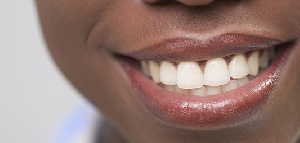The burden of oral health diseases remains one of the major national public health challenges in the country because their prevalence is unacceptably high.
The prevalence rate ranged from 52 per cent to 68 per cent for periodontal diseases and 12 per cent to 24 per cent for caries while knowledge and attitudes towards oral health remain poor, with pain being the greatest compelling community factors for utilisation of the oral care services.
Mr. Kingsley Aboagye-Gyedu, a Deputy Minister for Health disclosed this at the opening of the 27th Annual General Congress of the Ghana Dental Association in Sunyani.
The three-day congress on the theme “Advancing Oral Health: Unanswered Questions” was attended by dentists across the country and aimed at taking stock of the practice of dentistry in the country.
It was also to create the appropriate platform for oral health professionals to engage in a debate that could find answers to the challenges confronting the dental profession and the health sector in general.
Mr. Aboagye- Gyedu said a cross-sectional study on oral health care conducted in the Tamale Metropolis in the Northern Region revealed that oral health care delivery faced problems which included lack of policy guidelines, budget allocation, personnel and oral health care promotion activities.
He said Ghana’s health sector actively subscribes to the achievement of the Sustainable Development Goal (SDG) Three which seeks to ensure healthy lives and promote well-being for all at all ages by 2030.
Mr. Aboagye-Gyedu stated it, therefore, behoves on the participants and others as key stakeholders to work diligently, be it preventive, curative, rehabilitative and palliative to improve the quality of life for all Ghanaians and non-Ghanaians living in the country.
He gave the assurance that government would continue to build on its commitment to ensuring quality health service delivery, including oral health services to the people through on-going re-tooling and resourcing programme of the various levels of health services to their clients.
Steps were also being taken to ensure equitable distribution of Dental Health Practitioners across the country to make quality dental care services readily available for all, Mr. Aboagye-Gyedu added.
He announced the Health Ministry was nearing the final stages of reviewing the National Health Policy which also places enormous emphasis on the use of health promotion and disease prevention to attain optimal health for the populace, especially the poor and the vulnerable.
Dr. Francis Adu-Ababio, the Dean of the Kwame Nkrumah University of Science and Technology Dental School expressed concern that Ghana had a population of about 29.6 million but having close to just 400 registered dentists “is grossly inadequate”.
“Sadly, the great majority of dentists are concentrated in the southern belt of the country”, he lamented and therefore suggested the need for a dental school to be established for the three northern regions.
Dr. Adu-Ababio noted that would not only help to improve the numbers but also assure a more equitable distribution of dentists in the northern parts of the country.
General News of Wednesday, 4 July 2018
Source: ghananewsagency.org
Oral health diseases becoming major public health concern - Minister
Entertainment
















